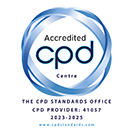1 December 2015
Dr Sam Collins - Ebola diagnostics in Sierra Leone: Experiences from the field
Organised by:
SCI's Membership Affairs Committee
SCI London
Registration Closed
This event is no longer available for registration.
Synopsis
The 2014 West Africa Ebola outbreak is the largest and most complicated since the disease was discovered; On 8 August 2015 the WHO Director-General declared this West Africa Outbreak a Public Health Emergency of international concern. There had been a total of 28,421 confirmed and suspected cases in West Africa and 11,297 deaths by October 2015.The lecture will be delivered by Dr Samuel Collins who has recently returned from Sierra Leone. He will describe the difficulties in establishing diagnostic laboratories in Sierra Leone and the complications faced throughout his deployments. He will share the memorable moments and what he describes as ’the most rewarding experience’ of his career.
Programme
Accessibility Grants
SCI accessibility grants are available to support SCI members with disabilities, long term health conditions, those who require a carer, and members who are nursing parents to attend SCI events. Download an application form to apply for a grant.
Venue and Contact
SCI
SCI14/15 Belgrave Square
London
SW1X 8PS
Please click here for a location map.
Conference Team
Tel: +44 (0)20 7598 1561
Email: conferences@soci.org
Fees
Become an SCI Member and save on this and future events
See Membership OptionsSign up as an Event Member to join this event. SCI Full or Student Members receive discounts on event registrations
Booking Process/Deadlines
CPD Info
All delegates attending this meeting are able to claim CPD points.
Additional Info
Ebola Virus DiseaseEbola Virus Disease (EVD) is a severe and often fatal illness in humans that spreads from animals to humans and from humans to humans. The average rate of fatality in EVD cases is 50%, but this can vary from as little as 25% to as much as 90%. There are four virus types which are known to cause Ebola Virus Disease in humans, and the current 2014 outbreak has been cause by the strain called Zaire ebolavirus. This largest outbreak commenced in December 2013 in Guinea, West Africa and by May 2014 the first confirmed case had been reported in Sierra Leone, where the outbreak spread, infecting more than 13,000 people and resulting in approximately 4000 fatalities.
Currently there are no vaccines licensed to protect against Ebola Virus Disease, but two potential candidates are undergoing evaluation and according to the WHO there is hope for a safe and effective vaccine by the end of 2015
Diagnostics, Facilities and first-hand experience
Diagnosis for EVD has its complications as it can be difficult to distinguish the illness from other viruses, such as malaria, typhoid fever and meningitis. To confirm a diagnosis, tests and investigations need to be undertaken that in themselves can pose an extreme biohazard and working on patient samples must be done in maximum biological containment facilities.
In October 2014 Public Health England commenced laboratory diagnostic testing in Sierra Leone as part of the UK Government response to the Ebola crisis. Dr Collins volunteered for deployment in early November 2014, as the number of weekly cases in Sierra Leone peaked and was deployed as part of Team 1 to Port Loko in the Northern Province of the country. He remained in Sierra Leone for five weeks, as a team of 10, helping to establish the testing laboratory at an Ebola Treatment Centre operated by the Irish charity GOAL. By the end of the deployment over 1000 diagnostic tests had been completed. Dr Collins re-deployed to the Kerry Town Treatment Unit near Freetown in July 2015, leading the PHE laboratory team supporting the Australian company Aspen Medical.
About the speaker
Dr Samuel Collins completed a PhD at the University of Southampton studying bacterial biofilm formation and 3-dimensional structure. His first postdoctoral position was undertaken at the Environmental Health Care Unit at the University of Southampton where he participated in an EU FP7 drinking water decontamination project. In 2013 Sam joined the Biosafety Investigation Unit at Public Health England as a Microbiologist. Sam has undertaken several research projects in the area of water microbiology with a particular focus on diagnostic and detection methods. He has participated in several outbreak investigations related to Legionella and non-tuberculosis mycobacteria. Sam is also an on-call scientist for the Rare and Imported Pathogens Laboratory at PHE Porton responsible for diagnosing a wide range of unusual bacterial and viral pathogens. Sam deployed to Sierra Leone twice during the current Ebola outbreak to help establish and run the PHE diagnostic laboratories.
“This event will be recorded and will be posted on the SCI website. Please note: some members of the audience may be in view during the questions and answers session at the end of the lecture”
Forthcoming Evening Lectures
10 February, Mr Guy Smith - Are Farmers ’Bee aware’?
30 March, Sir Paul Nurse - The Francis Crick Institute
26 April, Prof David Mottram - Drugs in Sport





